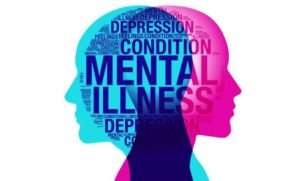Mind Disorders

In Ayurveda, mental health is considered an integral aspect of overall well-being. Mental disorders are understood in Ayurveda as disturbances in the balance of the doshas, affecting the functioning of the mind, emotions, and consciousness.
Introduction to Mind Disorders in Ayurveda:
-
Tridosha Imbalance:
- Ayurveda attributes mental disorders to imbalances in the three doshas. Vata imbalances may lead to anxiety, fear, and restlessness; Pitta imbalances can manifest as anger, irritability, and aggression; and Kapha imbalances may result in lethargy, depression, and emotional withdrawal.
-
Ama (Toxins) Accumulation:
- The accumulation of ama, or undigested toxins, is considered a key factor in mind disorders. Poor digestion and lifestyle choices can lead to the formation of ama, impacting mental clarity and emotional balance.
-
Sattva, Rajas, and Tamas:
- Ayurveda recognizes the Gunas—Sattva (clarity and purity), Rajas (activity and restlessness), and Tamas (inertia and dullness). A balanced mind is characterized by the predominance of Sattva, while imbalances in Rajas and Tamas can lead to mental disturbances.
-
Manas (Mind) and Atma (Soul):
- The mind (Manas) is considered the seat of consciousness, while the soul (Atma) is the essence of individuality. Mental disorders are viewed as disruptions in the harmonious interaction between these components.
-
Prana Vayu and Mental Energy:
- Prana Vayu, a subtype of Vata, is responsible for mental energy and communication within the nervous system. Disorders related to Prana Vayu can affect cognitive functions, memory, and overall mental clarity.
Common Mind Disorders in Ayurveda:
-
Unmada (Psychosis):
- Unmada is a broad term encompassing various psychological disorders, including psychosis, schizophrenia, and severe mental disturbances. It is often associated with imbalances in Vata dosha affecting the mind.
-
Chittodvega (Anxiety):
- Anxiety disorders are linked to imbalances in Vata dosha. Ayurvedic interventions aim to calm the mind and restore balance.
-
Manasika Vikara (Mental Disorders):
- This category includes a range of mental health disorders, including depression, bipolar disorder, and stress-related conditions. Imbalances in doshas and Gunas play a significant role.
-
Mada (Intoxication):
- Intoxication, whether due to substance abuse or other causes, is considered a state of imbalanced consciousness. Ayurveda emphasizes the need for detoxification and lifestyle changes.
-
Moha (Attachment):
- Excessive attachment or clinging to material possessions, relationships, or desires is considered a disturbance of the mind. Balancing emotions and cultivating contentment are central to Ayurvedic approaches.
Ayurvedic Management of Mind Disorders:
-
Balancing Doshas:
- Ayurvedic treatments aim to balance the doshas associated with specific mind disorders through dietary and lifestyle modifications.
-
Herbal Remedies:
- Ayurvedic herbs with adaptogenic, calming, and neuroprotective properties may be recommended. Examples include Ashwagandha, Brahmi, and Jatamansi.
-
Dietary Recommendations:
- Following a Sattvic diet that supports mental clarity and balance. This includes fresh fruits, vegetables, whole grains, and nourishing foods.
-
Lifestyle Adjustments:
- Incorporating stress management practices, regular exercise, and maintaining a daily routine to support overall well-being.
-
Panchakarma Therapies:
- Detoxification therapies, such as Shirodhara (continuous oil flow on the forehead) and Nasya (nasal administration of medicated oils), may be recommended to cleanse and rejuvenate the nervous system.
-
Yoga and Meditation:
- Specific yoga postures and meditation techniques aimed at calming the mind, improving focus, and promoting mental balance.
-
Nidana Parivarjana (Avoiding Causative Factors):
- Identifying and addressing factors contributing to mind disorders, such as stress, improper diet, or lifestyle habits.
Now we will look in detail about some Mind Disorders through Ayurvedic Perception.
Overthinking
Uncontrolled thinking, leading to disturbed sleep and hunger.
Insomnia
Not able to sleep properly.
Excessive Emotional Disorder
How to control Anger, Sadness, Depression, Fear etc.
Schizophrenia
Schizophrenia is a severe mental health disorder characterized by distorted thinking, hallucinations, delusions, impaired emotional regulation, and altered perceptions of reality.
